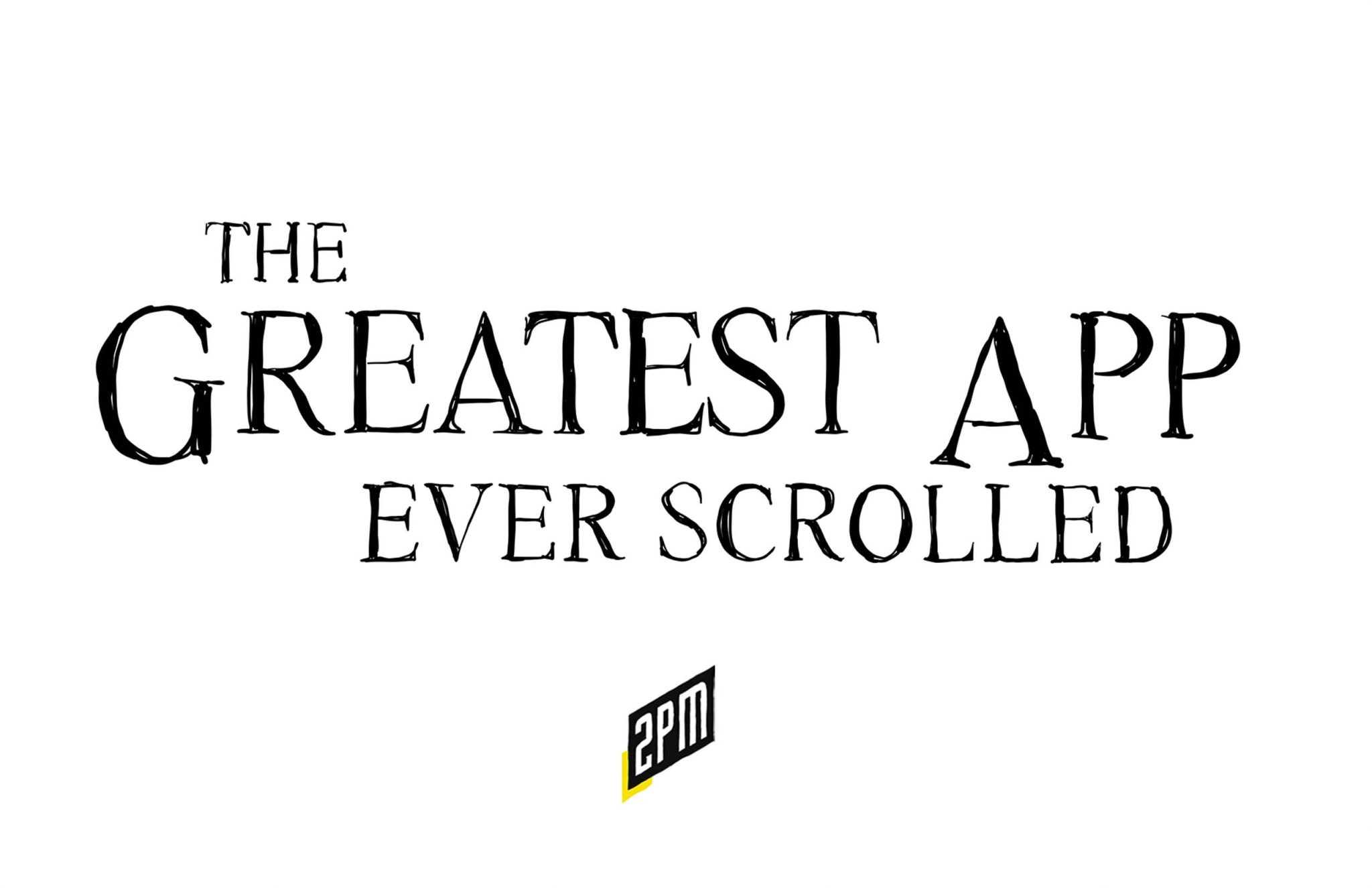
It’s one of the most impressive media properties in the world and one of the best (and most obscure) examples of linear commerce that I’ve stumbled upon (move over, Michelin). But you won’t find many success stories written about it.
Today, its track record, growth, and technology are on par with many of the strongest technology companies in the United States. It has one ownership group, no venture capital, and – with the exception of one 2013 New York Times article – it has gone virtually unnoticed by business or mainstream media. And still it is home to one of the largest online communities in the world. With just 165 employees (many of whom could work for any major tech company), it is responsible for over 545 million users and 5.5 billion app opens. Over 497 million videos have played through the app, it has 2,600 translations to cover as many formats and languages as it can. It sounds world changing to me. There are only few precedents for this type of reach.
Take a step back into time for a moment to understand the significance of the YouVersion Bible App.
The Gutenberg press is in part to thank for the boom in European literacy, the Italian Renaissance, the scientific revolution, the Age of Enlightenment, and Protestant Reformation (Martin Luther was once the world’s most published author). Gutenberg’s invention allowed for the mass production of books for the first time in human history. In 1455 Mainz, Johannes Gutenberg printed 180 copies of the Bible and from there, made history. In the larger scope, Biblical scholars now consider YouVersion to be a key player in the next third in how the book is consumed:
- scroll to codex
- codex to the 15th century printing press
- printing press to digital media
Innovation comes in all shapes, sizes, industries, and denominations. This report on an unheralded little mobile application headquartered in Edmund, Oklahoma may shock you, guide you, or even encourage you. It’s not objective; the app has played a major role in my previous year of deep thought and reflection. From that 2013 report on the then-eight year old company, here is a standout quote by former Kleiner Perkins investor, Chi-Hua Chien:
This is a remarkable tech startup by any measure.
Now the managing partner of Goodwater capital, Chien went on to compare YouVersion to then-hot companies Pinterest and Path, a now-defunct social media network that garnered wide praise, 50 million users (in 2013), and a $500 million valuation. At a tenth of the size of the app at the center of this report, it begs the question: what can we learn from its trajectory? Regardless of belief, this business deserves the Harvard Business case study treatment. This will have to suffice in the meantime.
The YouVersion Bible app, which was first launched in 2007, has had a significant impact on the growth of Life.Church and Christianity as a whole. Bobby Gruenewald, the CEO and founder of YouVersion and Life Church’s Pastor and Innovation Leader, has all of the pedigree of your traditional Silicon Valley entrepreneur:
As one of the leading voices in the Church on innovation and the use of technology, Gruenewald has been featured in The New York Times, TechCrunch, CNN, and more. Prior to joining the Life.Church team in 2001, he started and sold two technology companies as well as served in advisory capacities for various startups and venture capital funds.
Life.Church was founded in 1996 by Craig Groeschel, a leader that impresses with every book, sermon, podcast, and leadership session I have observed by him. Under Groeschel’s leadership Gruenewald left traditional business to work for Life.Church, and seven years later with Tory Storch, he co-founded YouVersion. The side project became one of the foremost media companies and spiritual development tools on earth. Here is Groeschel in an earlier interview on the genesis of the YouVersion app:
As our team thought about how Gutenberg’s invention revolutionized the accessibility and distribution of Scripture hundreds of years ago, we wondered how technology might be able to do something similar for our generation. So, we launched a website specifically designed to create community around the Bible. The only problem was — it didn’t work.
As a last-ditch effort, we offered a mobile version of the site and engagement took off. Shortly after, we heard Apple would be launching something called “apps.” With the momentum of the mobile site, we asked ourselves, “What if the Bible could be one of the first apps in the App Store?” We had a 19-year-old guy on staff create the first version of the YouVersion Bible App, and within three days we saw it downloaded on 83,000 devices.
The app has made the Bible accessible to millions of people worldwide through its free and user-friendly platform. It offers various versions of the Bible, reading plans, and devotionals, which have encouraged individuals to engage more with the scriptures on a daily basis. Additionally, the app’s social features, such as the ability to share verses with friends, have facilitated personal connections and helped to spread the message of the gospel.

As a result of these features and the overall growth of iPhone and Android usage over the last fifteen years, Life.Church and many other Christian organizations have been able to reach and impact more people than ever before. Like the Gutenberg Press, the app has been instrumental in promoting biblical literacy, fostering spiritual growth, and strengthening the faith of its users. It has also helped break down geographical barriers and connected people from diverse backgrounds, allowing them to engage with one another and share their faith journeys. It’s no coincidence that Groeschel and Life.Church now steward over 35 physical locations with 85,000 members, according to Outreach Magazine, the authority on tracking fast-growing churches.
Both the Gutenberg Bible and the YouVersion app have played a major role in increasing access to the Bible and making it easier for people to study and engage with the Christian faith. They have also had a profound impact in this way.
Let’s look at this from a purely business perspective.
Technology is in Life.Church’s DNA. Because of Groeschel’s ability to think and hire smart people, the church is likely the largest in the world. The YouVersion Bible App was formative in the trajectory of the church’s growth and its ability to raise funds for debt-free expansion. The app’s social features have helped democratize access to the Bible and other tools that were never centrally-located prior to YouVersion. These features have contributed to a more engaged and connected Life.Church community, ultimately leading to its growth. What’s even more impressive is the financial technology built within the mobile app.

With Apple Pay, Paypal, and other one-click tools, the app supports its own growth without the continued investment from Life.Church (it is reported that the app’s initial investment exceeded $20 million). Imagine: just a few years after the growth of Facebook from college campus to college campus, Groeschel felt compelled to pitch a world-changing mobile app to his first campus in Edmund, Oklahoma. Still, there are plans for more.
In a 2021 article in the New York Times on Facebook’s intentions for integrating more religious content into its platform, Gruenewald explained:
Facebook’s outreach was the first time a major technology company wanted to collaborate on a development project. Obviously there are different ways they ultimately, I am sure, will serve their shareholders. From our vantage point, Facebook is a platform that allows us to build community, and connect with our community and accomplish our mission. So it serves I think everybody well.
His point of contact at the company (now Meta) was Nora Jones, who served as Meta’s direct of global faith partnerships. On January 19, she left Meta to join YouVersion as the Chief Content Officer. Hiring Jones and other pedigreed executives from Fortune 500 companies is all a part of the plan, according to Gruenewald. The article goes on:
Currently, 165 people work on the app, said Gruenewald, and there are plans to double the team in the next few years.
It’s a remarkable story of an alternative to the growth customs of any organization, one whose success story from a two-car garage in 1996 is already enlightening and encouraging enough.
Over the last 317 consecutive days (at the time of publishing) and counting, this app has quite literally changed how I view the world. I am a product of its numerous “growth hacks.” The app sat dormant on my phone for nearly a decade. Here is a summary of the eight most effective ones:
- universal access: 2600 versions including 50 English versions
- UCG: daily devotionals and reading plans
- feel good: badges for streaks and participation
- daily reminders: maintain your habit of study, meditation, and prayer
- audiophile: you can now listen while you work
- streaks: just like Snapchat but the Bible
- reason to login: a verse of the day, each day, everyday
- leadership through love: a team devotional function that helps others around you
The last hack is the one that turned a dormant app into a daily fix for me. A venture-backed entrepreneur in the eCommerce logistics industry reached out to me in December 2021 and said, “Join my men’s devotional group.” I did. And then, weeks later, I kept digging and digging until I decided to drop what was once important to me. I went all=in on really studying and understanding. I began to read what I should have been reading all along.
The Gutenberg press began with a bible and unlocked a tidal wave of secular literary milestones that changed humanity. What lessons from this will be applied to modern business? I suspect that as more people learn of this story, there will be more than a few.
The business of church is incredibly difficult to navigate. Few organizations have the tech-adjacent entrepreneurial spirit that Groeschel cultivated in Oklahoma. It began with what I suspect to be a key question: “What is our Gutenberg press?” That’s a big question that requires a moonshot of an answer. His was to self-fund one of the first 200 free apps in thee Apple app store in 2007. The result is the most far-reaching and powerful media company in the modern church. Over 545 million people later and I think he’s found his answer. I am eternally grateful for it.
By Web Smith | Edited by Hilary Milnes with art by Alex Remy and Christina Williams

Love the app. Been using it since the beginning. Talk about product market fit!! Leveraging technology to tell the story is spot on. This move is really no different than Renaissance painters depicting the old and new testament. Have super talented people tell the story in a new medium. btw check out The Chosen (https://watch.angelstudios.com/) as another example of taking a medium and telling the story with great insight and talent.
I have had the Chosen app on my phone for a while and I am so impressed by the donation system that they have in-app to offset some of the costs of production. Truly incredible.